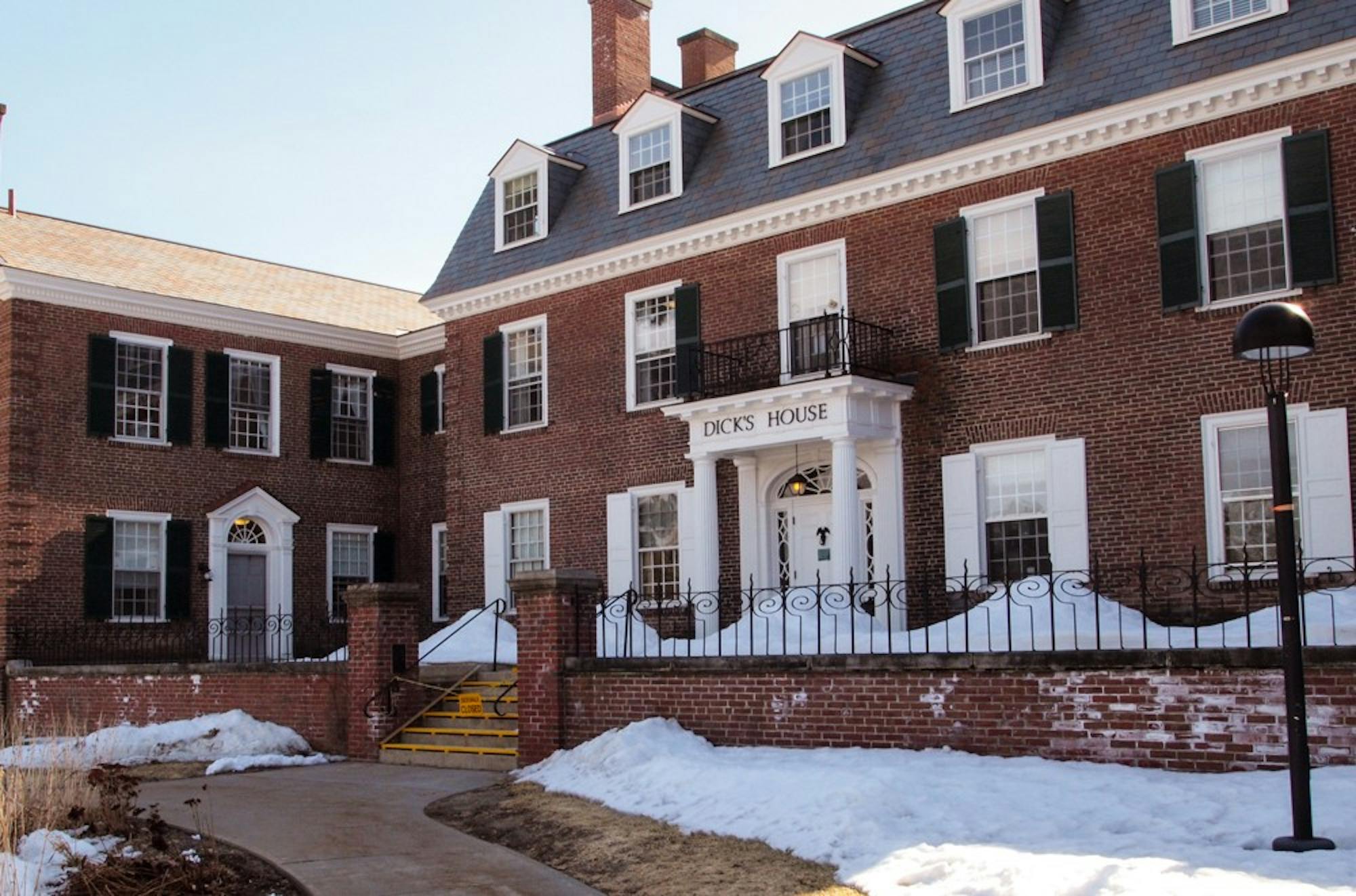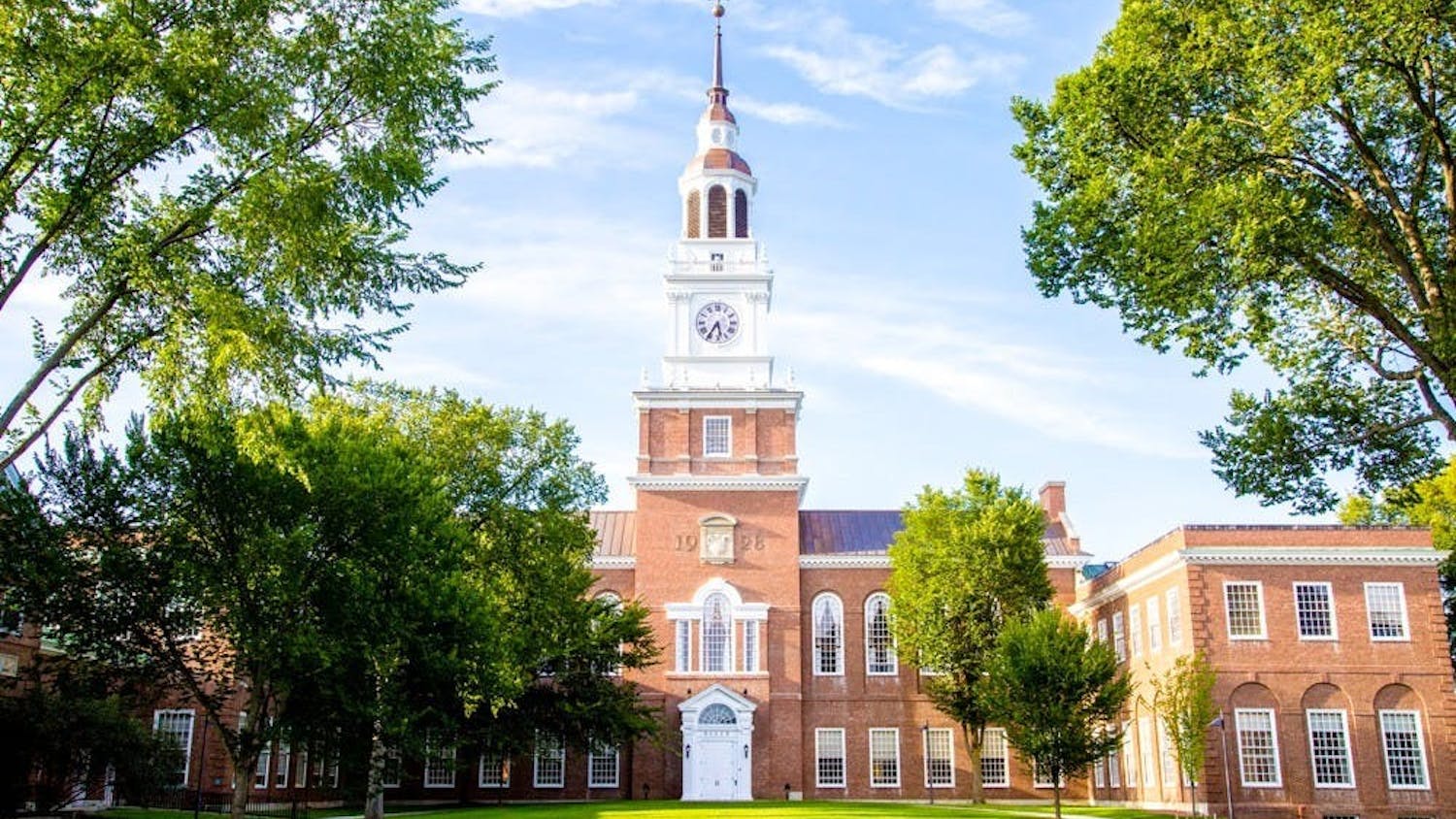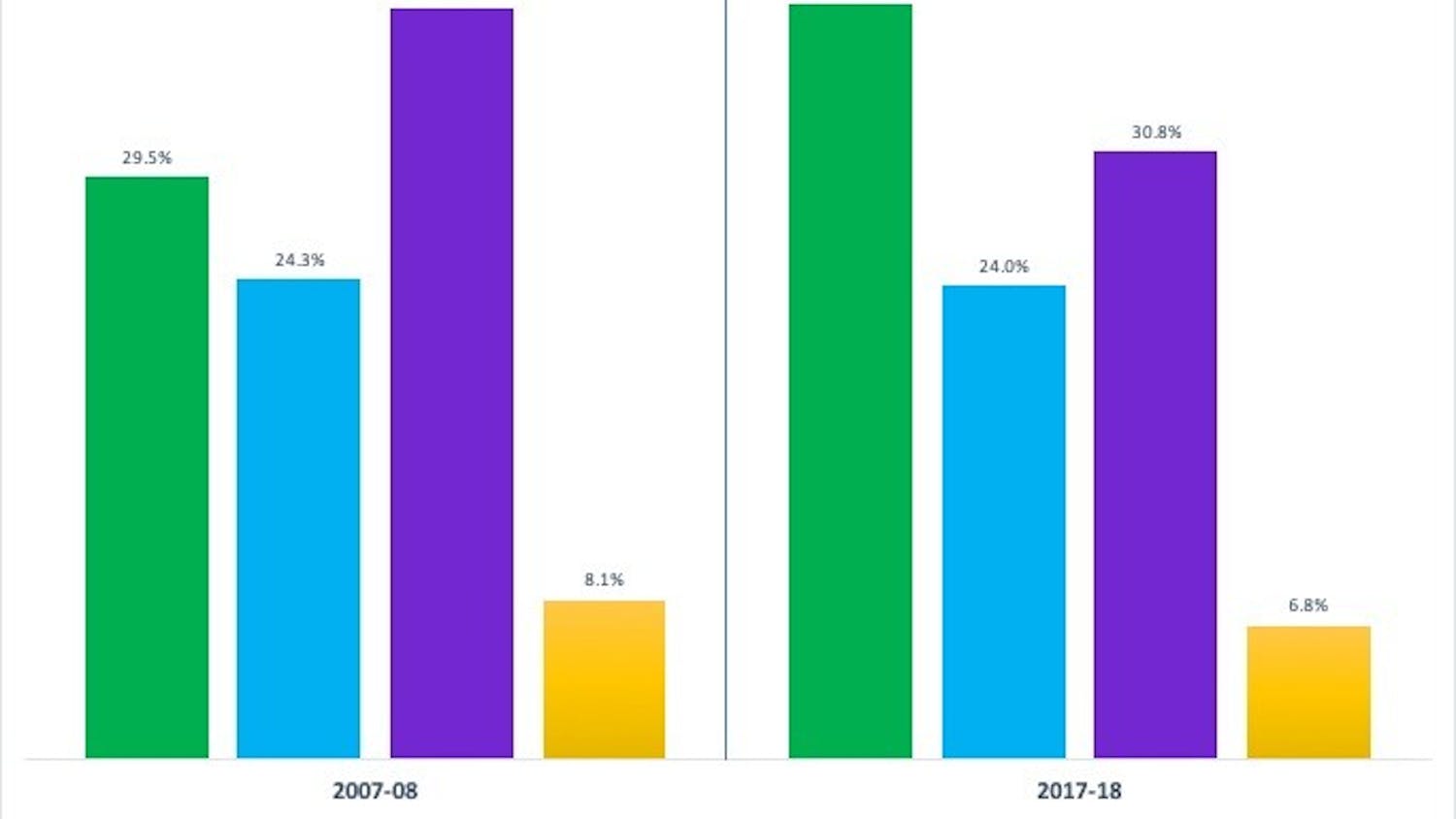In spring 2018, a student visited her friend Jeremy Hadfield ’21’s room after not hearing from him for several days and found a carefully-crafted suicide note on his desk. After panicking over what she thought meant the loss of her friend’s life, Hadfield entered the room. With much encouragement, Hadfield decided to seek help at Dick’s House, And after meeting with a counselor the next day, Hadfield agreed to the terms of voluntary medical withdrawal.
The College’s medical withdrawal policy states that in cases where students “experience health issues that significantly impact their ability to function,” they will either be able to apply for voluntary medical withdrawal, or be subjected to mandatory medical withdrawal as per the recommendation of Dartmouth College Medical Care. According to Dick’s House director of the Counseling Center Heather Earle, medical withdrawal concerns both mental and physical health, and Dick’s House helps facilitate around 50 medical withdrawals per year.
During the first few weeks of that spring term, Hadfield said he “started to feel [himself] collapsing” and was experiencing symptoms of chronic depression, including isolation from family and friends, excessive sleeping, feelings of extreme hopelessness, lack of motivation — to the point where he became suicidal. At that point, he said, he had stopped being able to complete school work and had begun drafting suicide notes for his family and friends.
“I’m going to die, why would I do any of this?” he recalled thinking. “I was very certain that I was going to be dead within a month,” he said.
Hadfield said he did not seek help because he didn’t want to be forced to leave campus and was worried he would not be able to return.
“I was worried that [going home] would make it worse, especially because I would be alienated from the support networks I had at Dartmouth, including my friends, Dick’s House and professors,” Hadfield said. “Some people have [that support] at home, but I personally don’t.”
According to Hadfield, his apprehension around seeking help at Dick’s House and going on medical leave is not unique.
“I’d heard a lot of scary things about medical leave,” he said, “Most people here don’t reach out for help, and I think it causes a lot of suffering here at Dartmouth.”
Sanat Mohapatra ’20, a creator of the mental health app Unmasked, which is an anonymous mental health conversation platform, said that there is a “persistent fear” around going to a counselor about suicidal ideation because students think they might be forced to go on medical leave.
Earle told The Dartmouth that although students are not allowed on campus during medical withdrawal, those who do not feel safe or comfortable returning home have the option of staying in West Lebanon or in areas near campus.
However, Hadfield said that he did not have the financial ability to pay for rent or to support himself while living alone in these areas, and therefore saw returning home as his only option.
After Hadfield confided in a counselor at Dick’s House for around an hour, the counselor asked him if he was willing to be admitted to the hospital.
Hadfield said he was eventually given the options of accepting voluntary or involuntary medical leave, which he said felt like an “illusion of choice,” so he chose voluntarily medical leave.
“I wish he had asked me, ‘What do you think your ideal plan of help and survival would be right now?’” Hadfield said.
Earle said that mandatory medical leave is very rarely administered, though when a student meets the criteria for mandatory medical withdrawal, they are offered the option of voluntary medical withdrawal. She added that, most times, students choose voluntary rather than mandatory.
“We would take steps to see ‘can they be safe?’ If the answer is no, then we will have them sent to the hospital and have them assessed over there,” Earle said. She added that not all students with suicidal thoughts are sent to Dartmouth-Hitchcock Medical Center — it is only those with plans and means to act on them.
Earle noted that only around half of students who go to the hospital end up going on medical leave, whereas the other half are able to remain on campus — though this can be difficult, considering they have to make up for the work they missed.
“Sometimes we’ll find that professors are willing to work with them, but when they come back [from DHMC], they feel so far behind that a medical leave becomes an option,” said Counseling Center associate director Bryant Ford. “They are still given the option to persist academically.”
In situations in which it is possible, Dick’s House and the College administration attempt to find ways to keep students on campus by encouraging them to drop a course and by supporting them with regular counseling and meetings with their undergraduate dean, according to Earle.
After agreeing to go to the hospital, Hadfield said he was escorted into a Safety and Security car by two police officers.
“It was weird to be in that very depressed state, and then have police officers come to me and tell me, ‘You need to come with us,” Hadfield said. “It felt very much like a punishment.”
Hadfield described riding in the back of the Safety and Security car alone with dispatch calls coming in via the radio as a “very negative” and “scary” experience.
Upon arrival at the hospital, Hadfield said he was patted down and potentially harmful items were removed from his body, including his phone. He said he was then locked in a room where he sat on his own for several hours before he was formally admitted.
According to Hadfield, two police officers also entered his dorm after his departure and removed any potentially harmful items from his room, as well as his “extremely personal” suicide notes, which were never returned to him. He said this felt like a breach of confidentiality, and was concerned that people in his dorm suspected that the officers were there for criminal reasons.
Following his stay at the hospital, he returned to Dick’s House for a few days, where he was allowed to visit with friends for a few hours at a time before he returned home on medical withdrawal.
While being at home for over a year, Hadfield said he was contacted by the College only once. He identified this as the “single-most devastating thing about medical leave,” saying that because he was not contacted or supported by the school after returning home, it felt like an expulsion.
“I had developed what I thought was a relationship with this counselor, and then he just kind of ghosted me,” Hadfield said.
According to Earle, because a student on medical withdrawal is no longer registered at the College, they cannot get counseling or other services at Dick’s House. However, Earle noted that Dick’s House counselors help students locate a counselor in their local area, preferably one covered by their insurance plan.
Earle said that there is no maximum or minimum number of terms students are required to remain on medical withdrawal; however, students must remain off-campus for the subsequent term. She added that the College believes it will likely take longer than that in order to “get to a solid place.”
As requirements for returning, Dartmouth expects students to present documents of having been employed or engaged in “sustained productive activities” while being off-campus, as well as documents proving they have received clinically appropriate medical treatment.
According to Ford, after the student has submitted documentation of these requirements, a team of counselors meets at Dick’s House in order to review the process to ensure that their decision to admit or deny the student’s return is correct and unbiased. This decision is then sent to the undergraduate dean and the student.
Hadfield said he had submitted a request for return after being off campus for three terms, but his request was denied. Hadfield described the College’s response as “very skeptical,” adding it felt like they didn’t want him to return.
“What should happen is the College should welcome you back with open arms, but instead it feels like they’re distancing themselves,” he said.
Hadfield said that he seriously considered transferring or dropping out of college.
“The prospect of spending another term of medical leave was really painful to me,” he said.
After the initial denial of his request to return, Hadfield said he decided to attempt to appeal the denial, but found that there was no in-place process in order to do so. He therefore decided to appeal the denial on his own terms: by submitting letters from his parents, employers, psychiatrist and personally writing to the College advocating for his return.
According to Hadfield, the College approved his return after he submitted his appeal.
Earle said that the vast majority of students that go on medical withdrawal return to campus. She added that after a student returns to campus, Dick’s House will reach out to the student over Darthub’s secure messaging feature to make sure they are receiving support and have knowledge about the medical leave support group.
A recent study by the Ruderman Family Foundation, “The Ruderman White Papers on Mental Health in the Ivy League,” found that 40 percent of students had been so depressed in the past year that they found it difficult to function, and 10 percent of undergraduates had seriously considered suicide.
The study criticizes policies such as not being allowed to return to campus while on leave on grounds of causing social isolation. It also advocated for better accommodations on campus, citing the Americans with Disabilities Act, which states that students with disabilities are entitled to on campus accommodations. It also finds issue with policies which require a minimum amount of time students stay on medical leave, considering the trajectory of healing for mental health issues can differ from student to student.
The study gave the highest grade (D+) to the University of Pennsylvania, and the lowest grades (F) to Dartmouth College and Yale University. The study’s goal was to reveal the underlying discrimination within medical leave policies in relation to mental health.
“I loved Dartmouth at first,” Hadfield said. “I applied here early decision. I fell in love with it. Overall, I don’t think people at Dartmouth recognize disability exists, and they don’t understand the challenges people with disabilities face.”
Correction appended (Feb. 7, 2020): This article originally stated that Hadfield had been diagnosed with Bipolar Disorder I while he was at home on medical leave. This is incorrect; he had been diagnosed with a different bipolar disorder prior to going on medical leave. The online version of the article has been updated to remove the specifics on his diagnosis.




